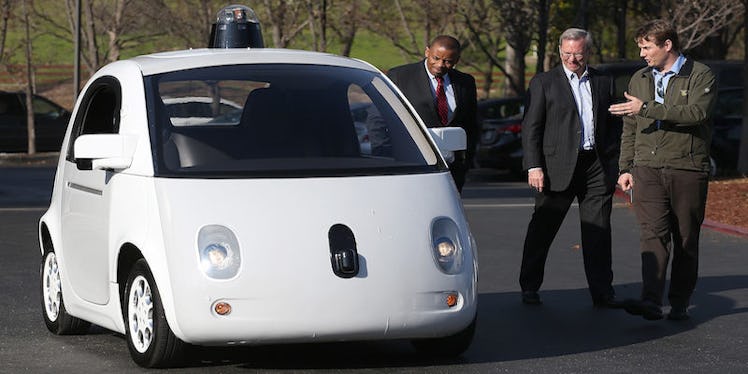
3 Ways Millennials Have Spearheaded The Era Of Driverless Cars
The Generation-Y is the largest in US history, even larger than the Baby Boomers.
Millennials are part of the generation that came chronologically after Generation-X. Most
Millennials reach young adulthood just after the 21st century.
Millennials are known for their increased usage of technology, having many Facebook friends and sending many texts per day.
Compared with earlier generations, Millennials are known to delay marriage and kids by several years, and wait a few years before buying a car and property.
As far as exercise goes, Millennials are exercising more, eating healthier and smoking less than earlier generations.
Because of the Millennial emphasis on technology and efficiency, they have been able to free up a lot of time in our lives.
The Millennial-inspired apps, technology and devices are now automating many aspects of our world that used to require labor and time.
In addition, Millennials have opened a door for a whole new market for secondary products.
What is perhaps most significant, however, is the fact traditional car companies will have to drastically change the way they operate, if they stand any chance of surviving in the Millennial world.
Here are a few ways the Millennial generation has and will change our world:
1. More amazing developments will be made because of the extra time we will have.
These days, many of our daily tasks and routines are becoming automated.
From food delivery and transportation to finding restaurants and bars, our world is increasingly becoming automated by technology.
The good news?
This heightened level of efficiency is freeing up a lot of time in our days.
We used to have to pull out maps to find directions, and now we merely type in the destinations on our phones.
We used to have to pick up the phone to order pizzas, and now we can open apps and have them delivered right to our doors.
We are quickly learning to outsource tasks we would never have considered outsourcing.
Now that we have extra time to work with, it's made room for even more innovation and developments.
What developments can we expect to see?
We can expect to see a continuation and even an exaggeration of the trends we have been seeing.
Driving will soon be an entirely automated process with self-driving cars and shared rides.
Food delivery will be exclusively on-demand, and goods and services will become available per our request by the click of a button.
2. New markets for shared and secondary products will be created.
Another advantage of the growing Millennial economy is the increase in new markets for shared products.
Products and experiences that used to be exclusive to an individual — car rides, ordering food, working out — are now being grouped together to become more efficient and less expensive for all participants.
Take a look at GrubHub, for example.
GrubHub is a mobile app that enables users to order food from different restaurants using their smartphone.
Whereas earlier people had to physical go to the restaurant or, at the very least, pick up the phone and place an order, now they can outsource the labor by using the app to pay a middle man to deliver the food for them whenever they want.
Secondary products are being given a new light in this market as well.
When a consumer no longer wishes to own his or her product, whether it’s a car, iPhone or TV, there are now a multitude of different platforms on which he or she can sell his or her product.
TVs no longer have to be given away at yard sales or to a friend.
You can go online and sell it to a buyer the same day.
3. Traditional cars and insurance companies will be forced to either innovate or die.
With the rise of Uber, Lyft and other ride-sharing companies, traditional car and insurance companies will need to do something drastically different if they want to survive.
In fact, Uber has shown that using their ride-sharing feature called UberPool is less expensive and more convenient than owning a car both in the short term and the long term.
Travis Kalanick, CEO of Uber, said:
Our intention is to make Uber so efficient, cars so highly utilized that for most people it is cheaper than owning a car.
Uber’s initial service was to provide users with an on-demand taxi service, in which users can request a “taxi” at their location and have a driver show up promptly.
Now with UberPool, users are able to share these rides, splitting the cost with other riders who are going in a similar direction, thus lowering the cost for all passengers.
In the near future, Kalanick says Uber will probably include driverless cars.
When they do, they will be potentially be replacing the drivers with the cars that operate themselves.
Google is already developing their own driverless cars.
With this technology, Uber plans to successfully implement on-demand rides that are more efficient, easier and cost-effective than any scenario involving car ownership.
Car ownership comes with many fixed costs, including maintenance, repair, gas, insurance, etc.
With Uber’s developing technology, the costs for the vehicle will be paid for by the hundreds of riders who use it.
The vehicle will thus be operating under maximum efficiency and usage.
Not only could Uber take over the car manufacturing industry, but they believe driverless cars could end the car insurance industry.
Within the next several years, between ride-sharing and self-driving cars, the Millennial wave will bring in a new wave of transportation experience.